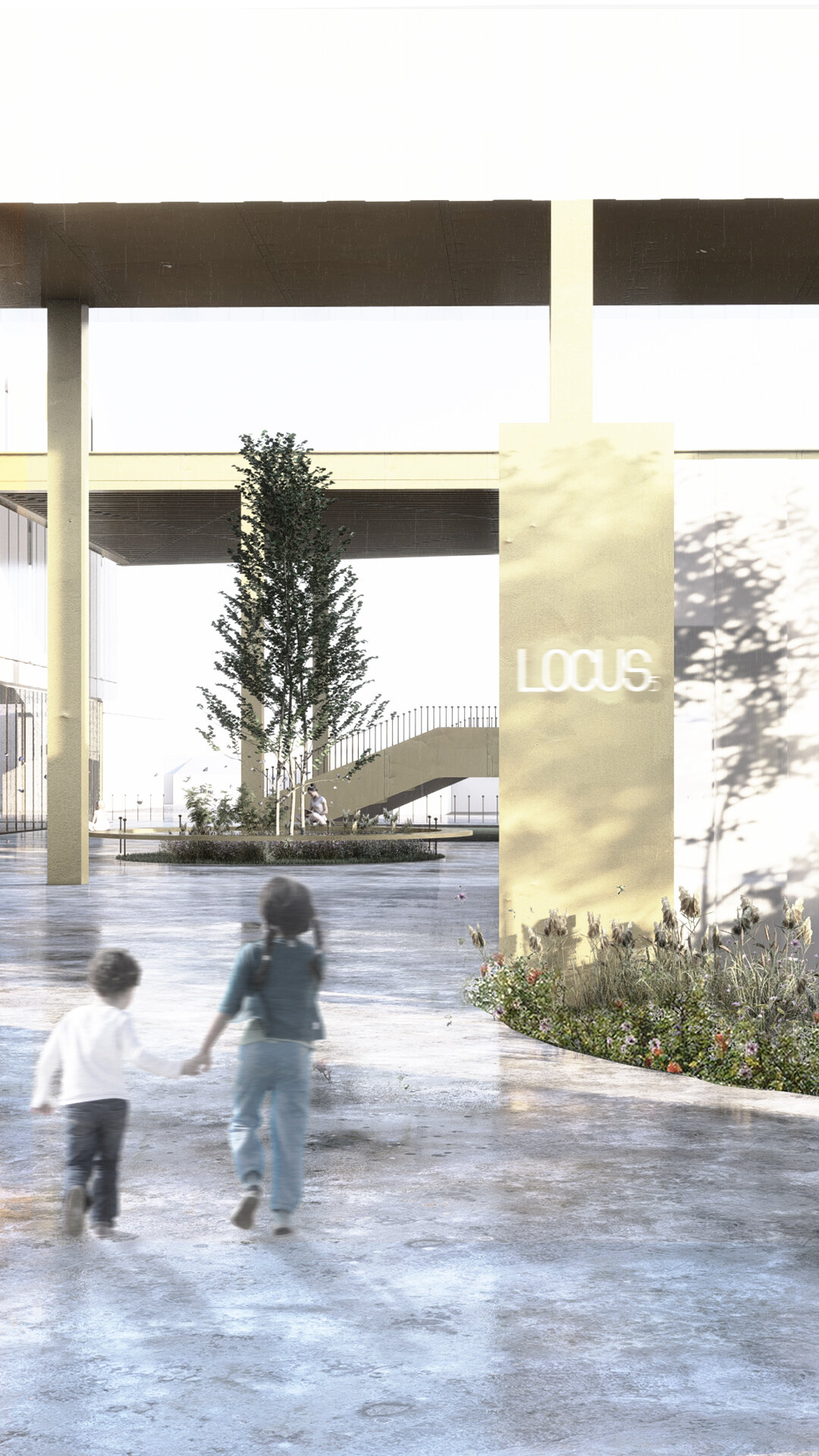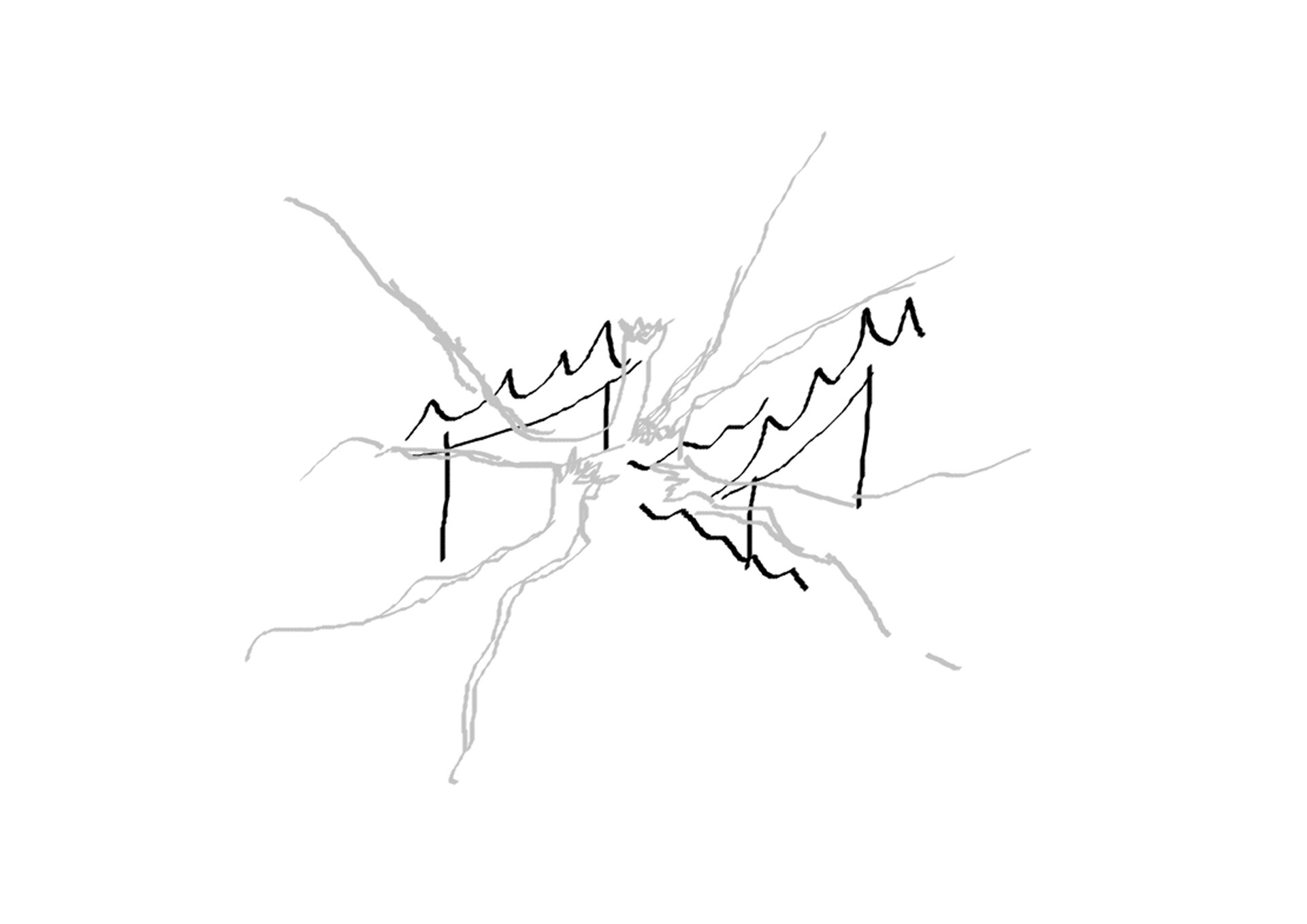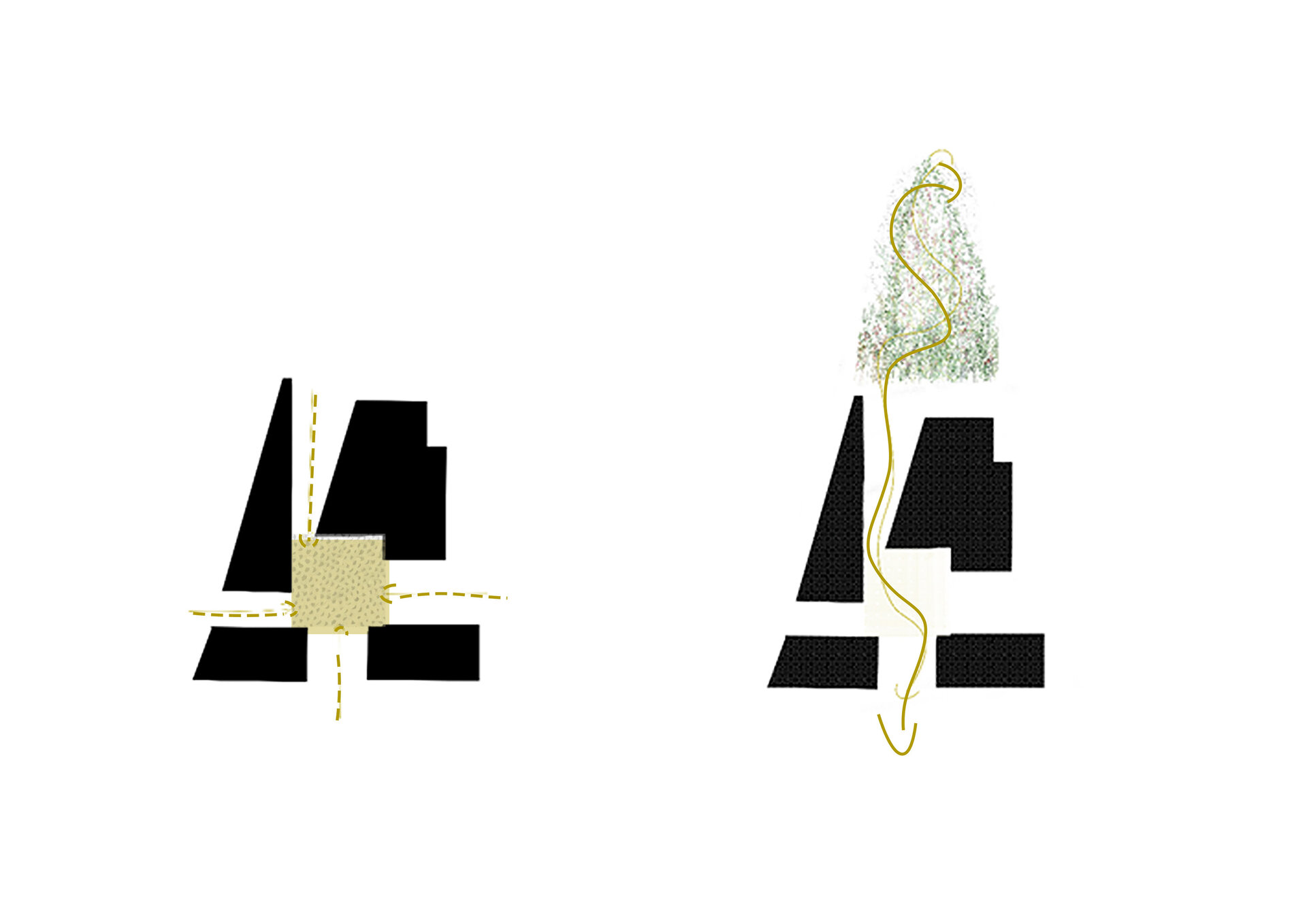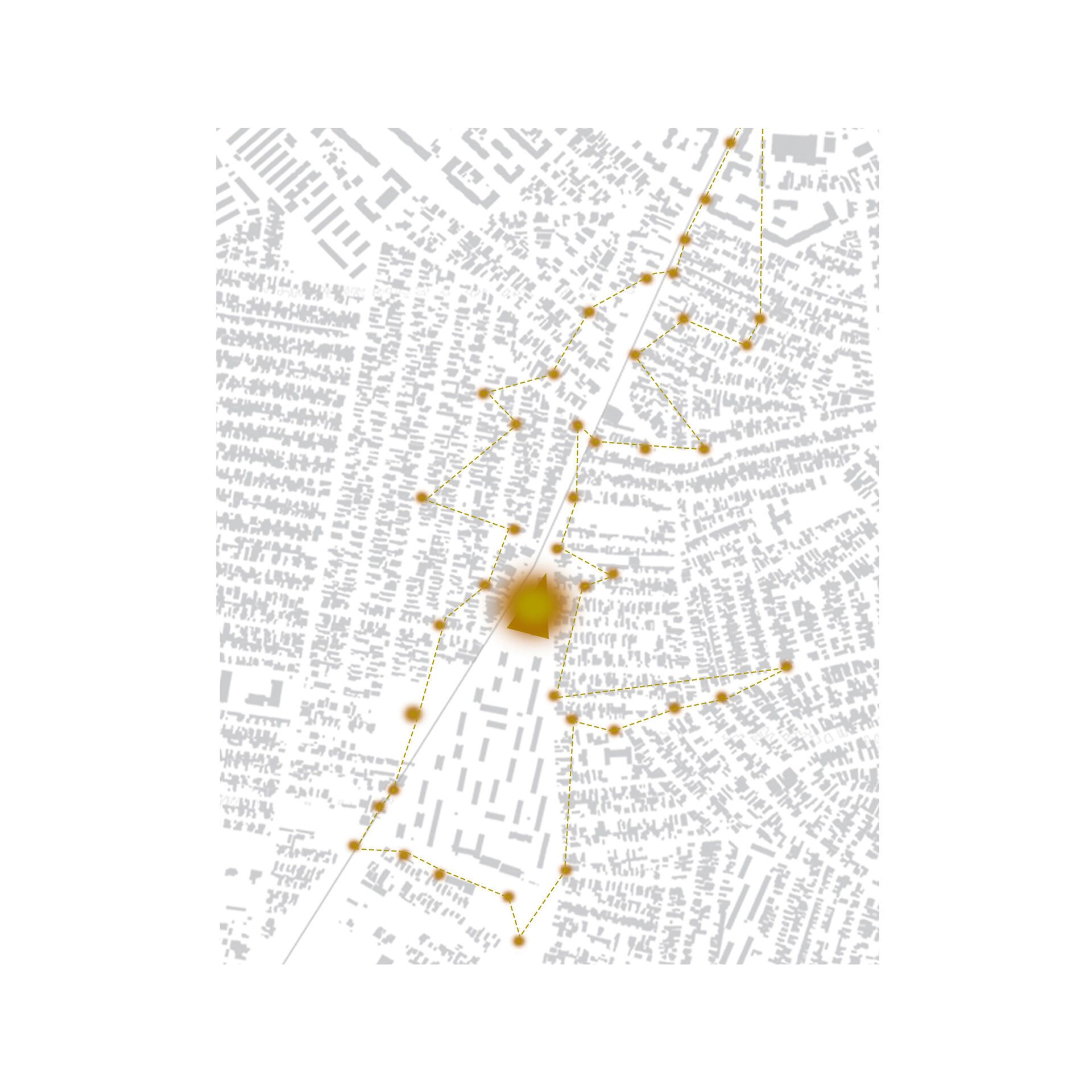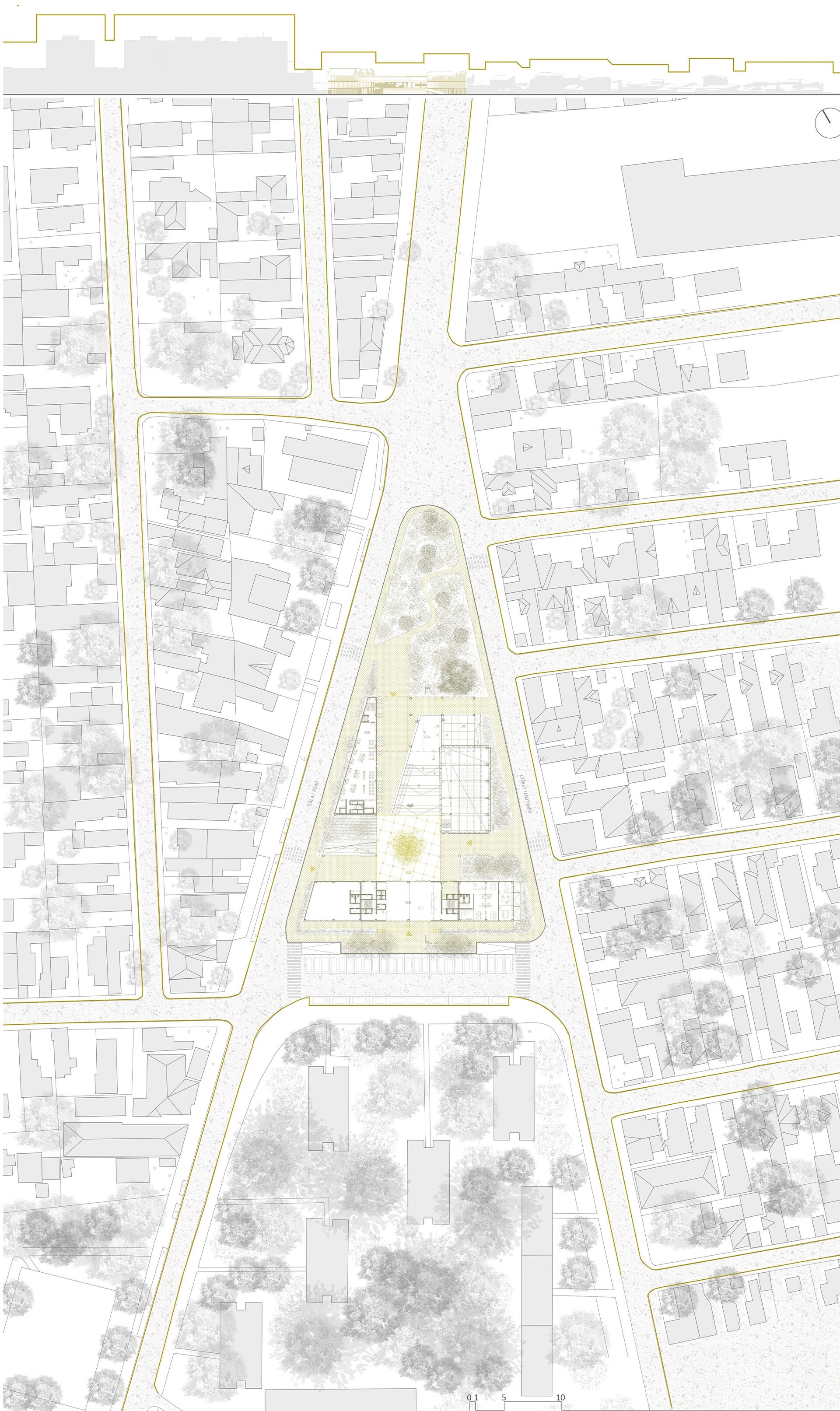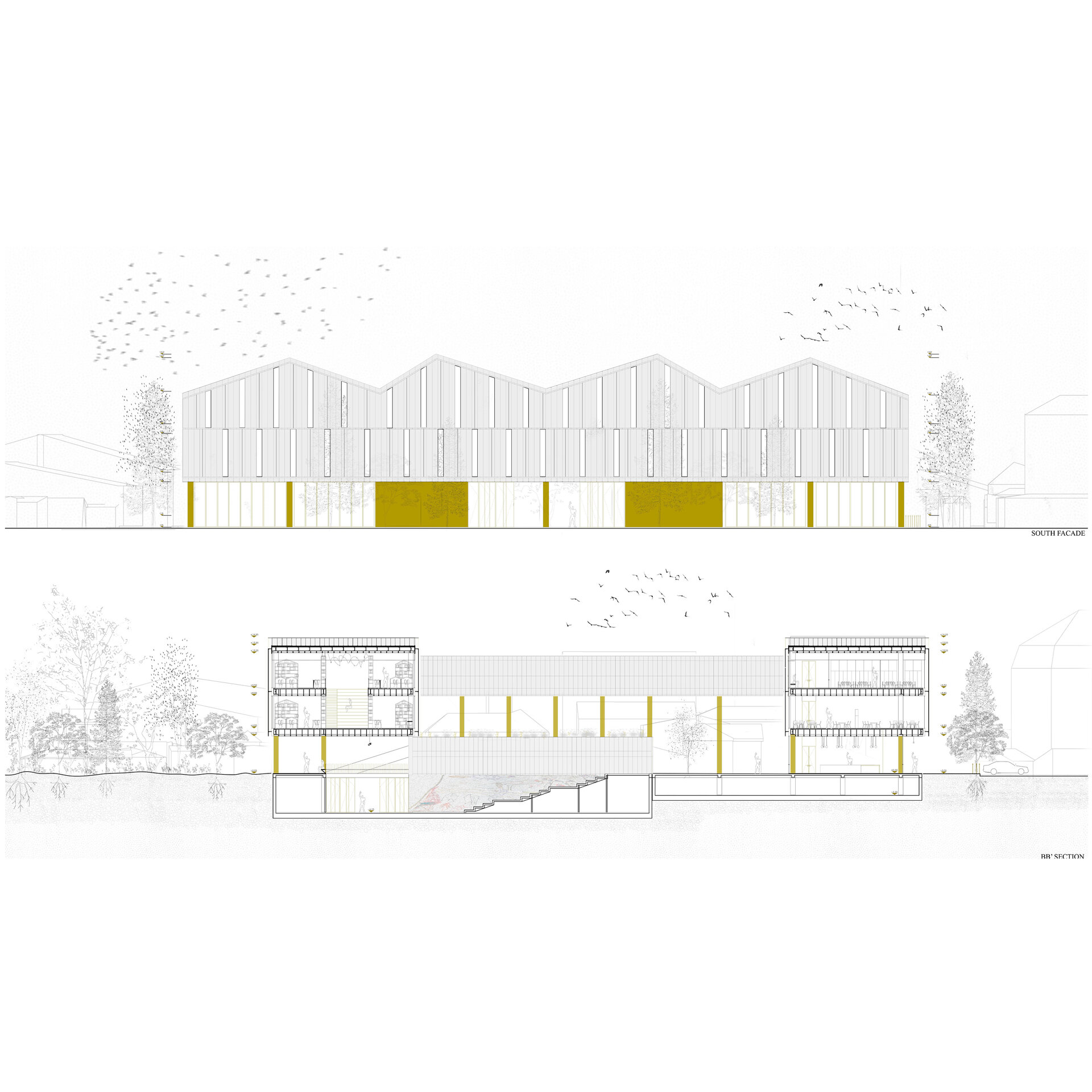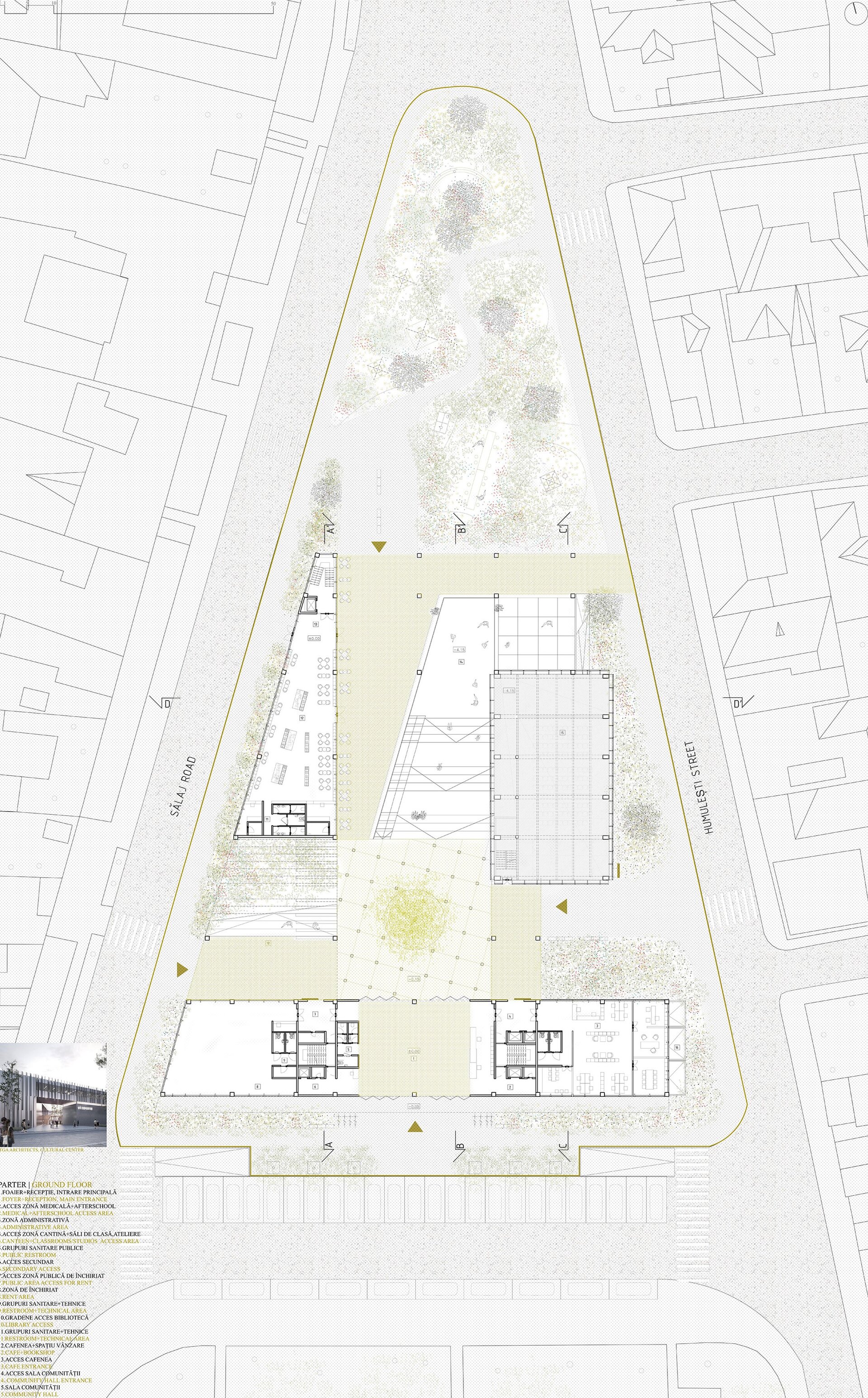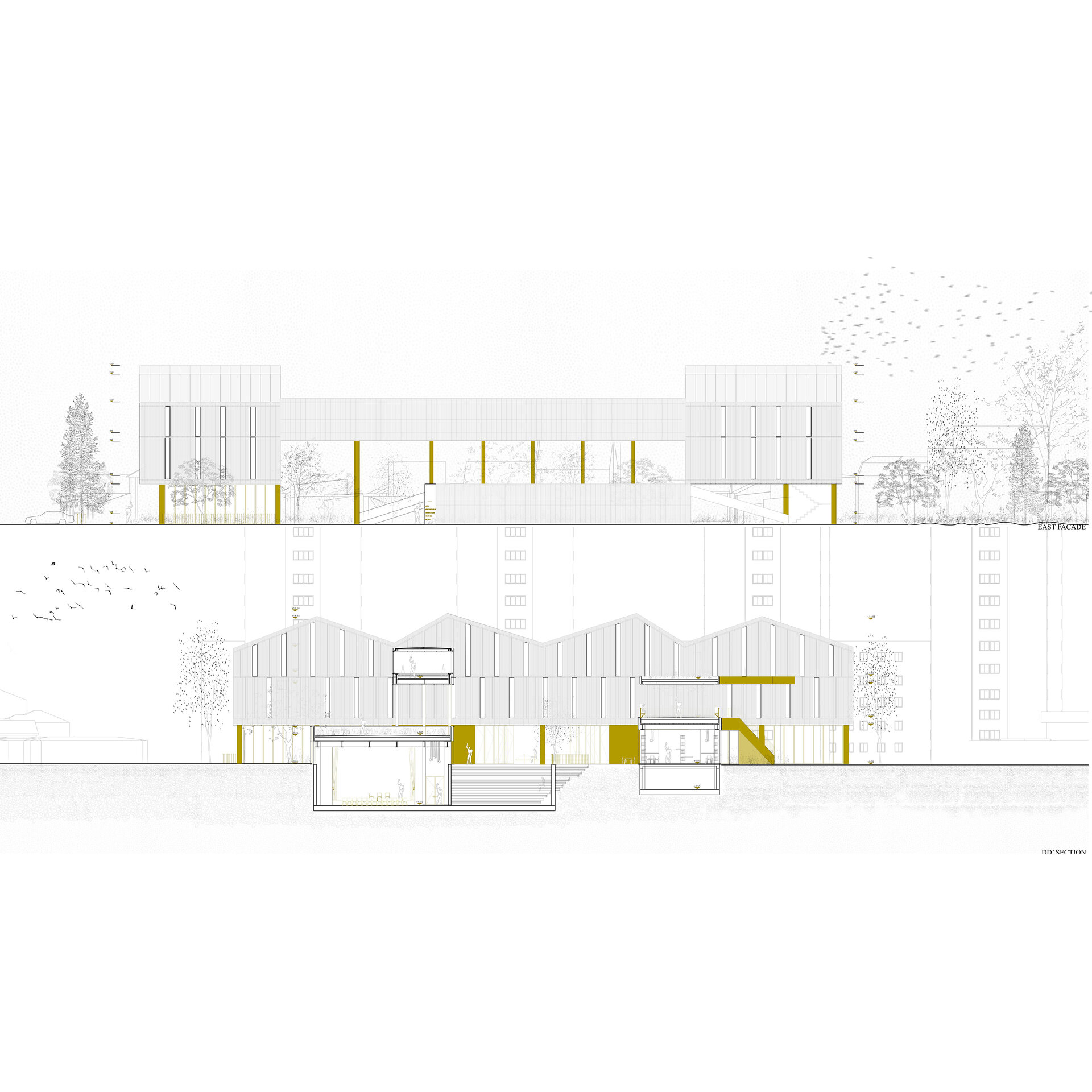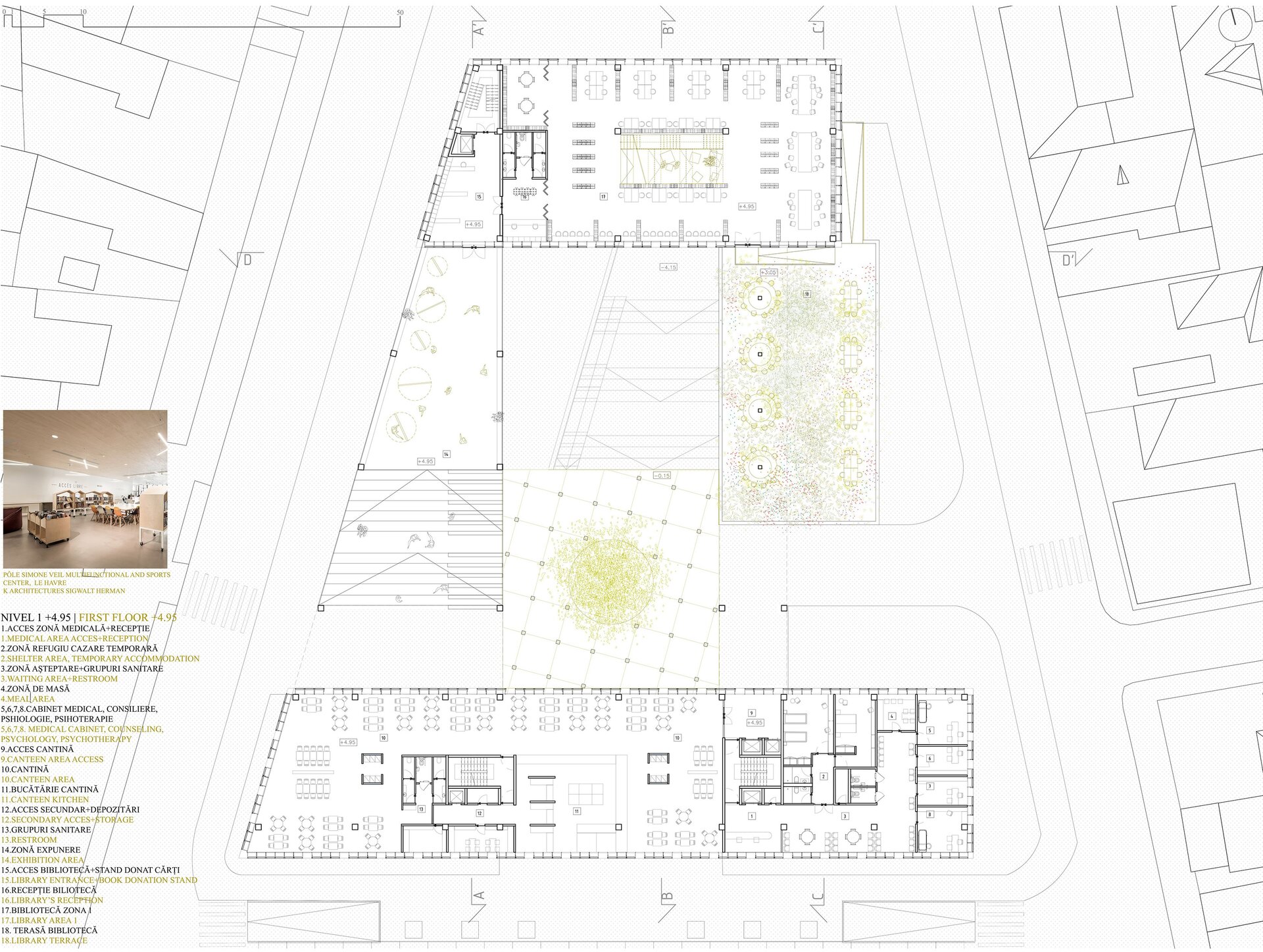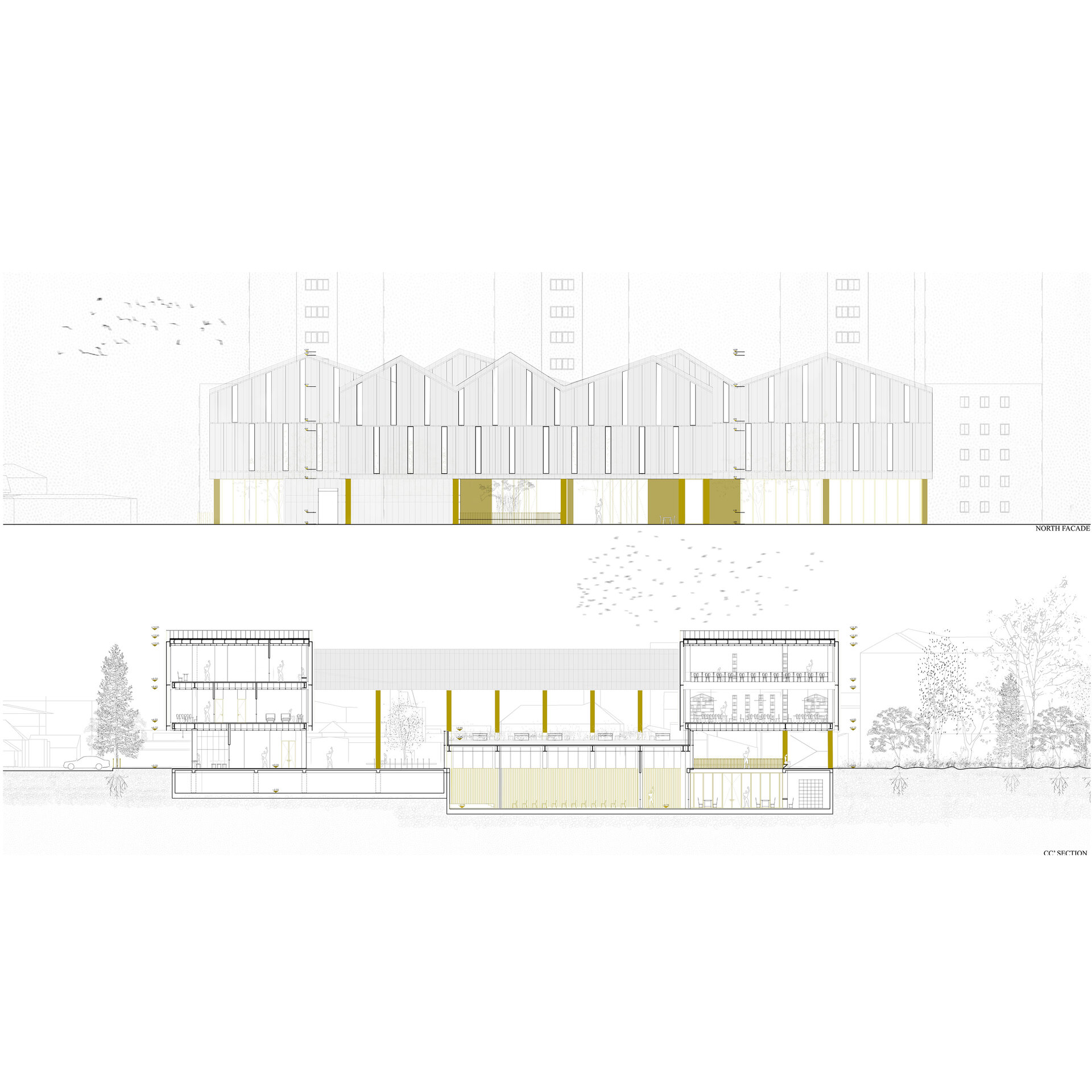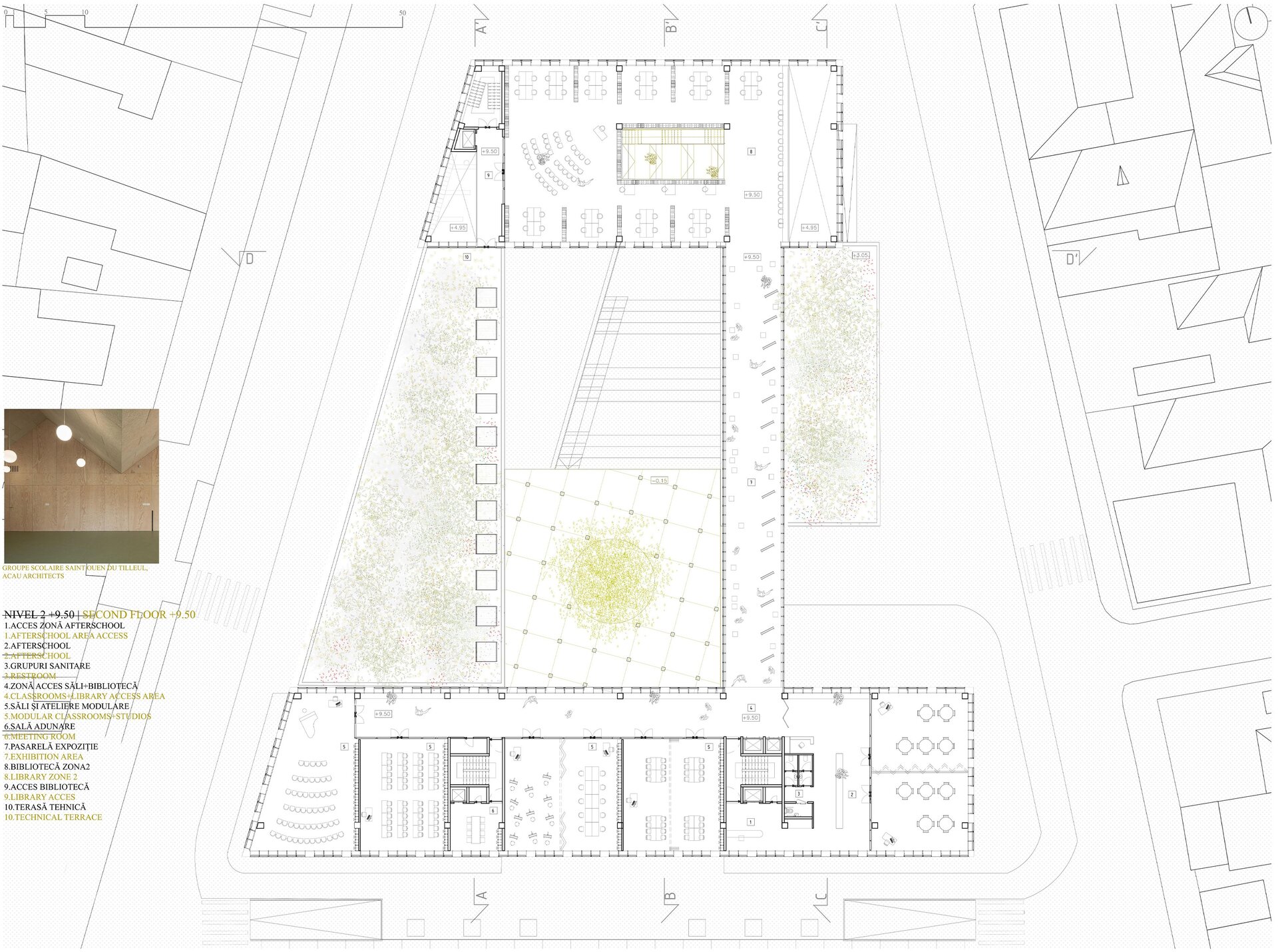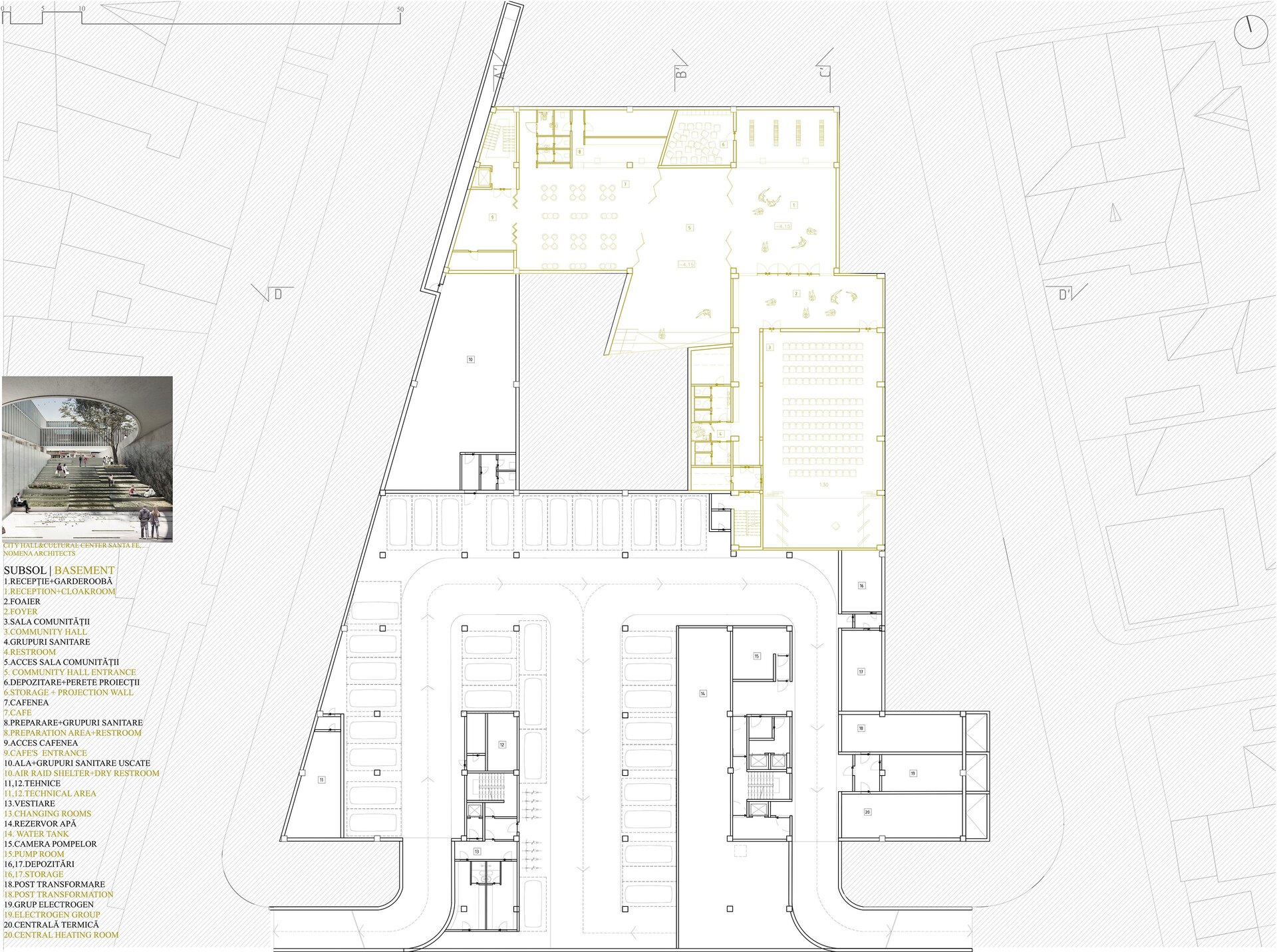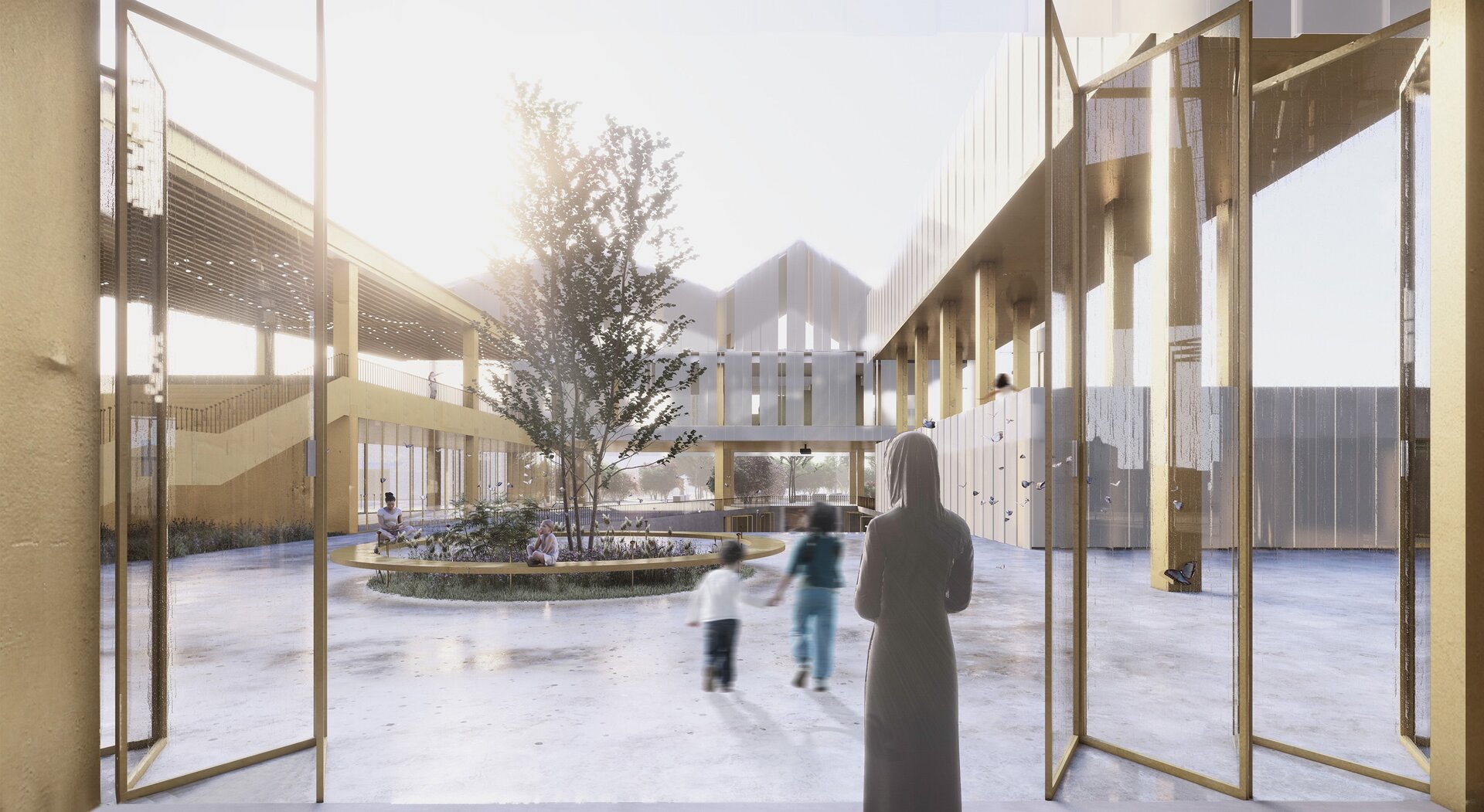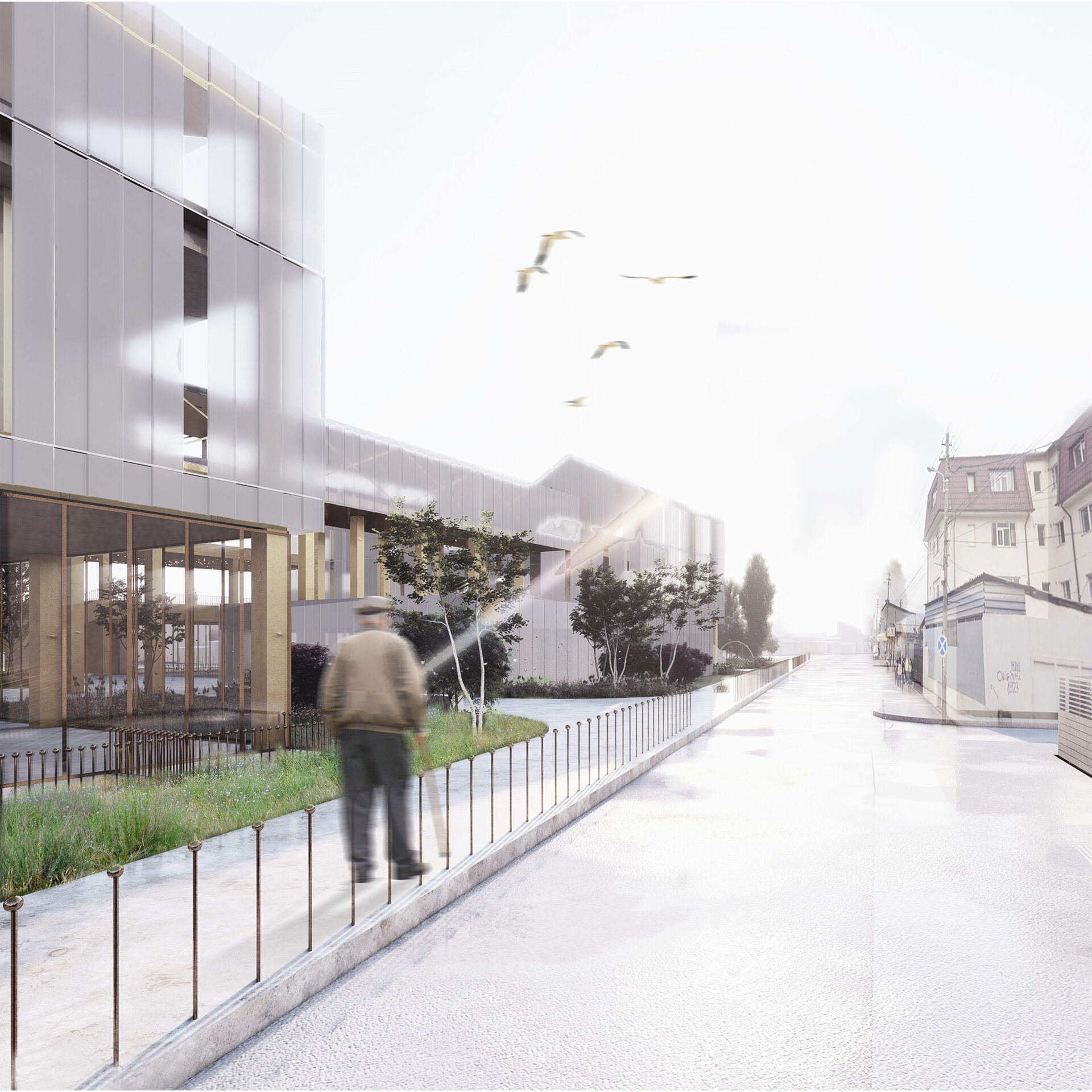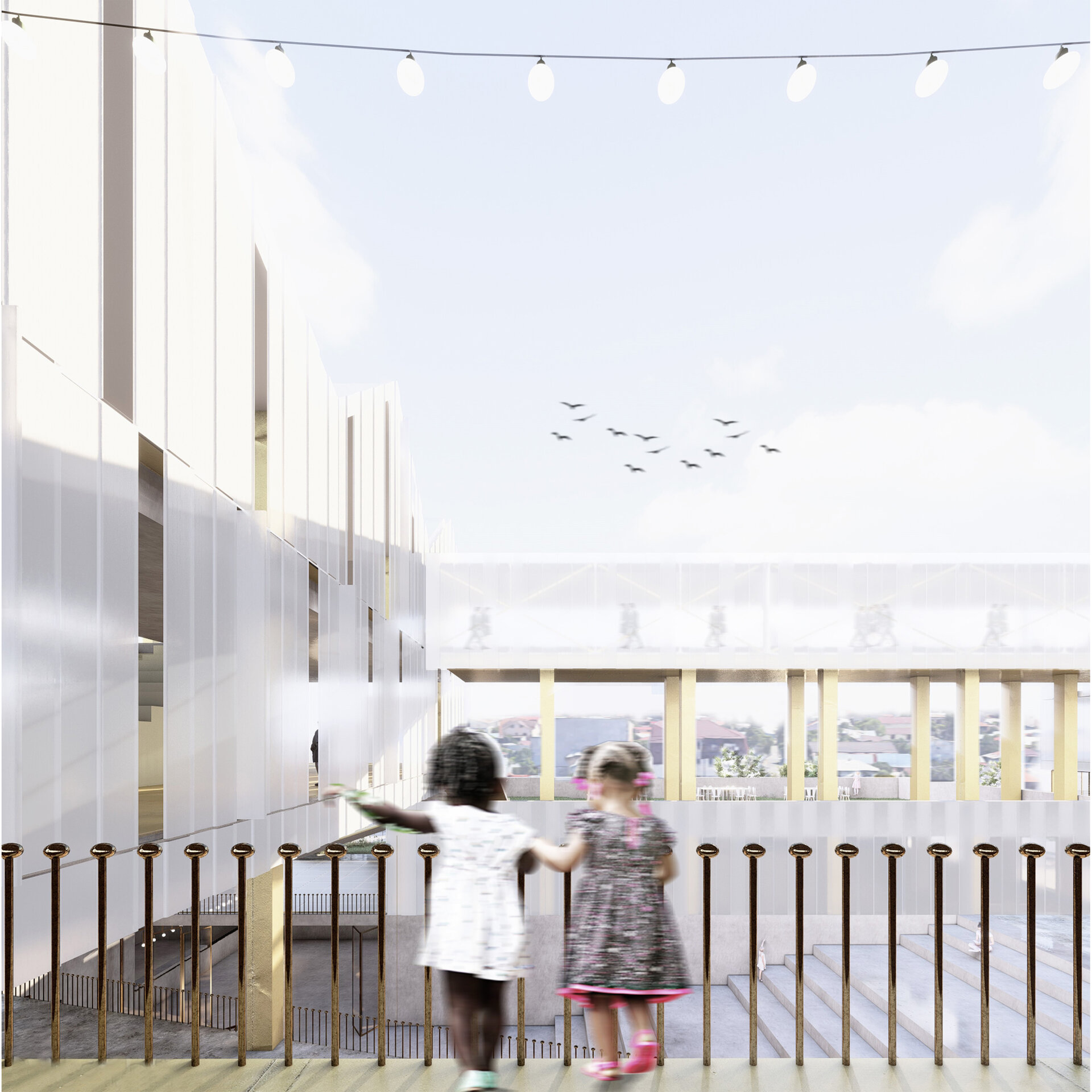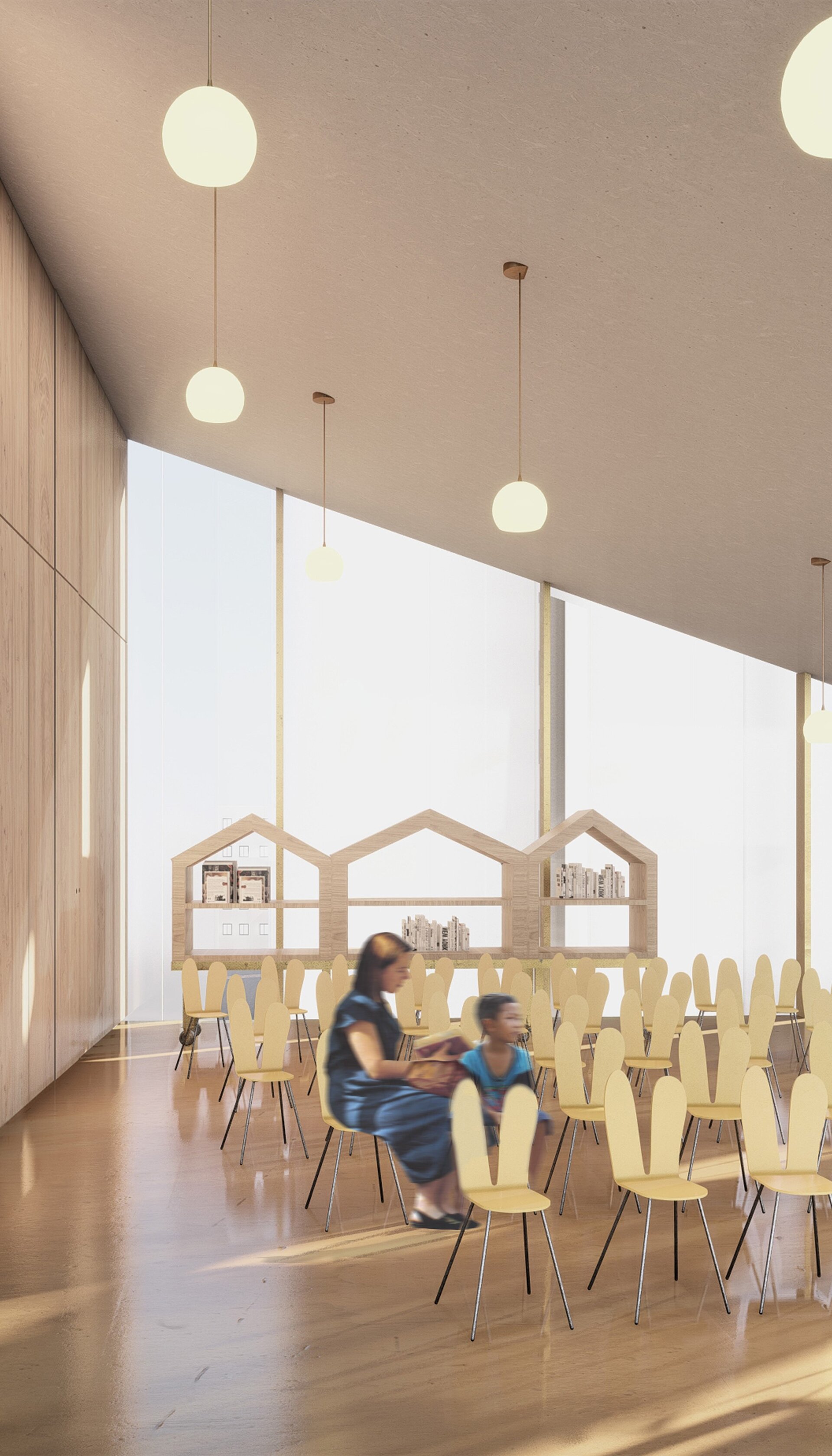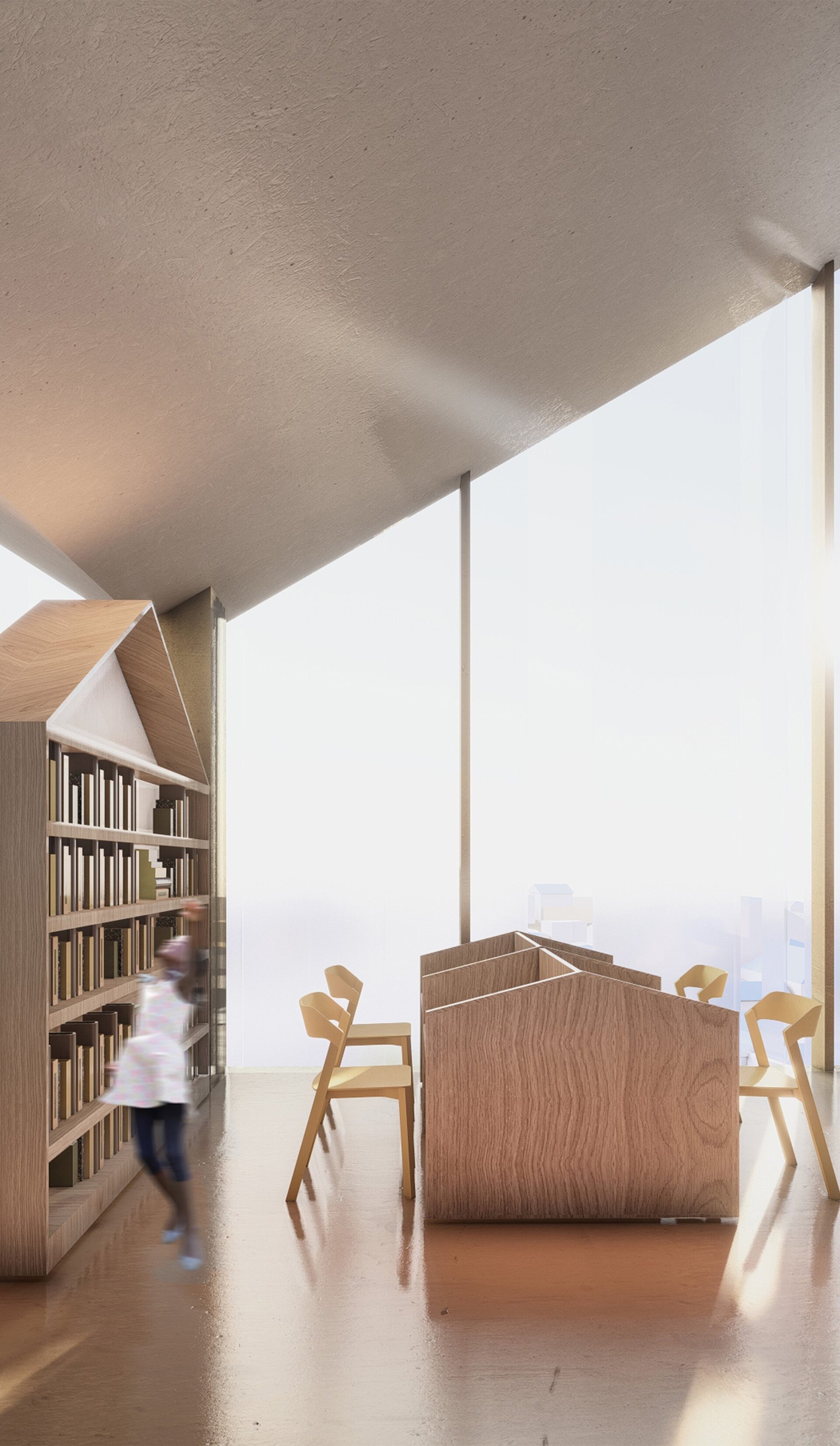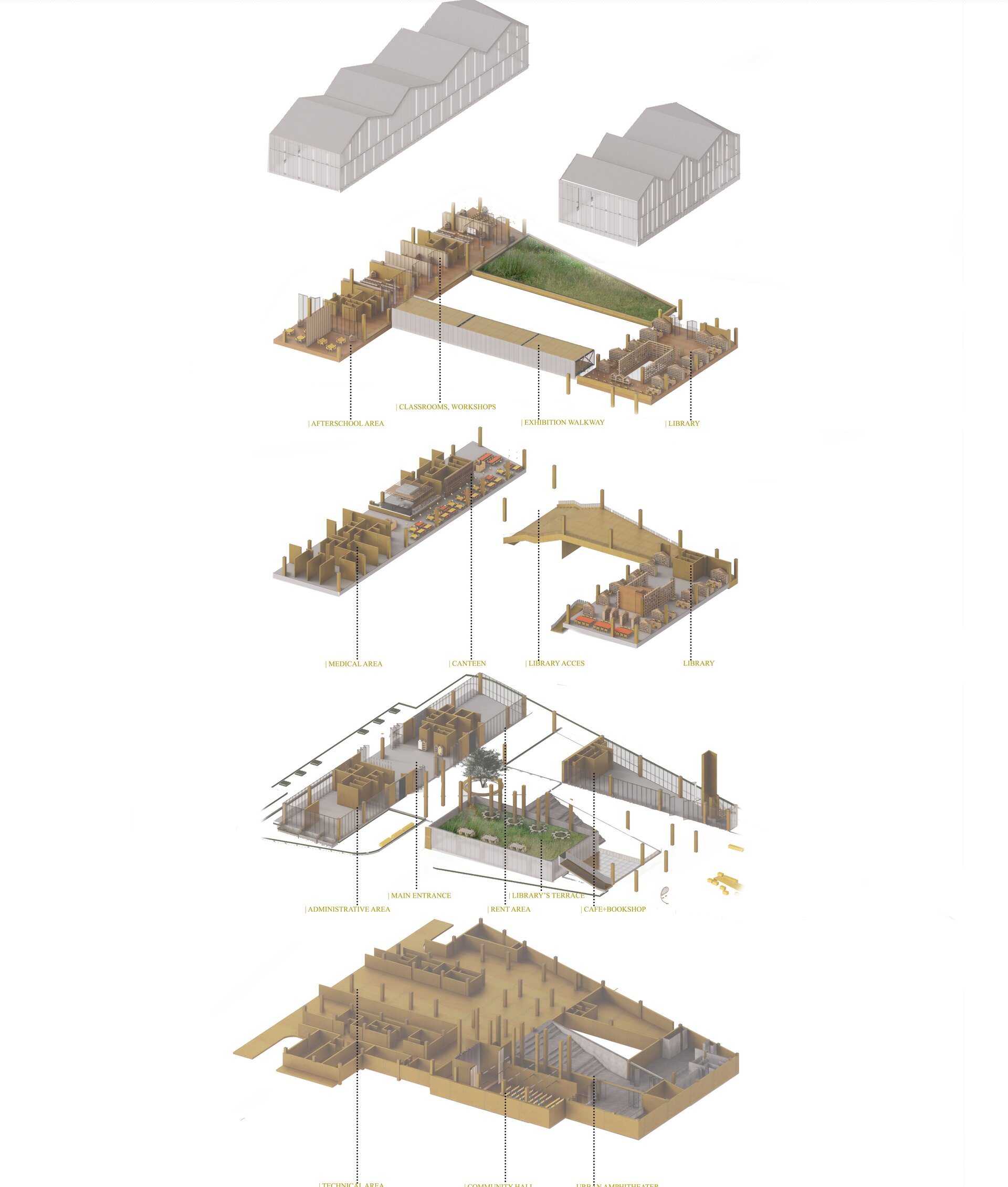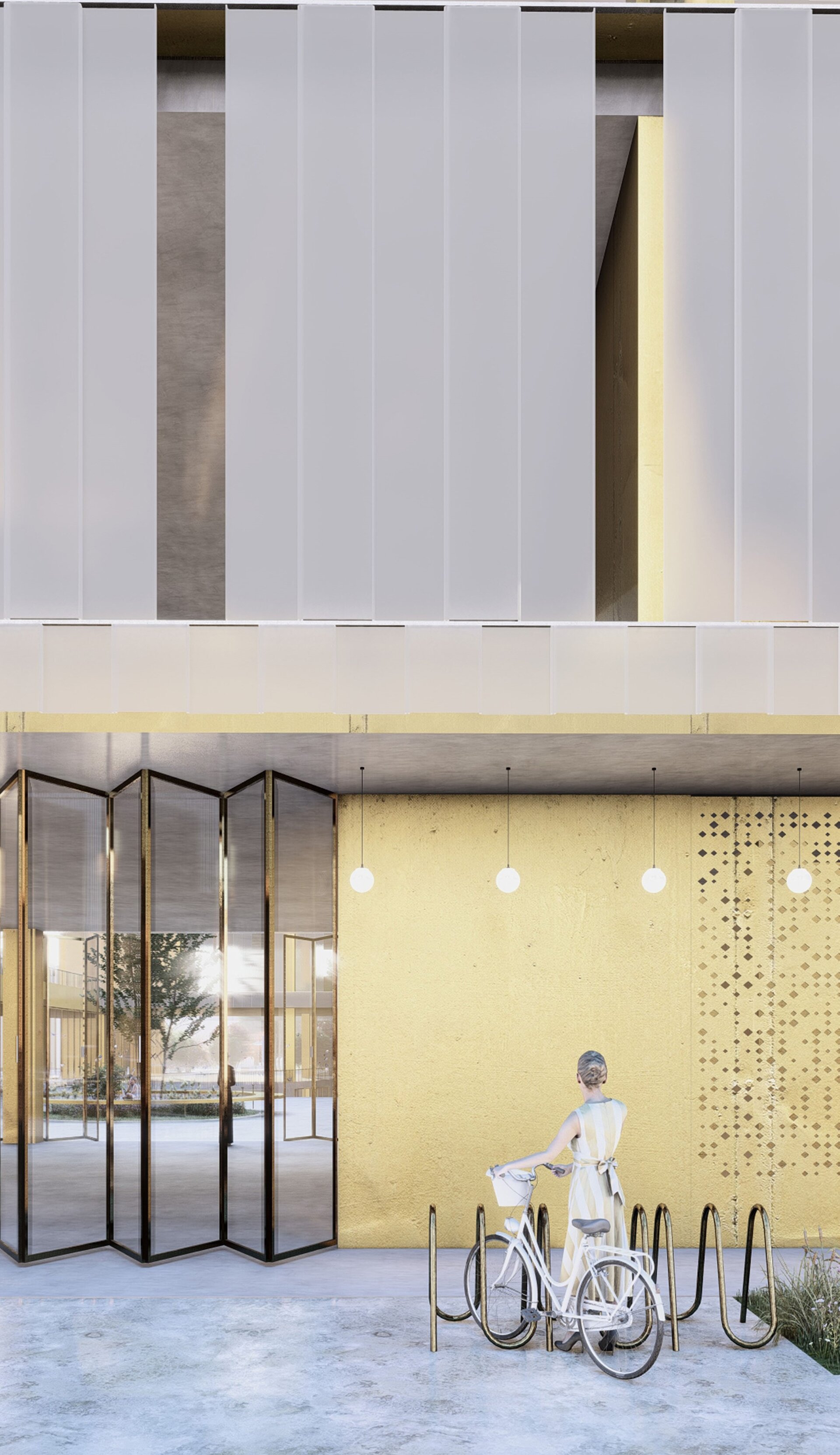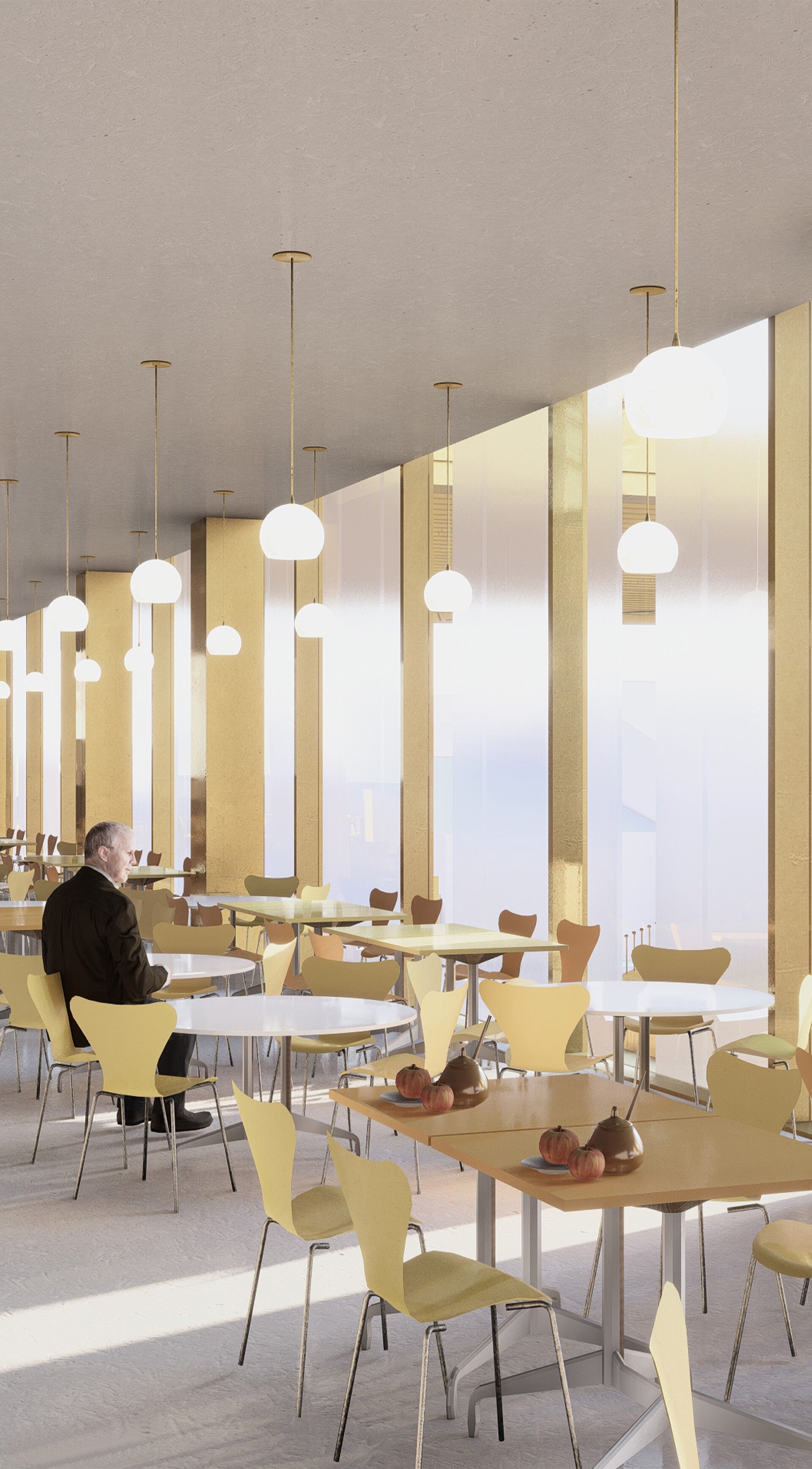
Creating places in undesired spaces, Community Center in District 5, Bucharest
Authors’ Comment
The diploma project follows the steps for the realization of a Community Center (of lifelong learning) that will bring together the necessary functions for the development or consolidation of a community and the ways in which it can influence the inhabitants in a positive way. It originates on the border between the Ferentari-Rahova neighborhoods, an area that has been characterized over time by the majority's tendency to categorize it — without really knowing it — as inferior. Thus, the image already created in people's minds of these neighborhoods led, over time, to the social exclusion of the inhabitants, to their distancing from educational opportunities, from full participation in the economic, social or cultural life of society.
My proposal consists in creating a point as part of a strategy of punctual interventions that culminates with this larger intervention, a community center. The strategy is called LOCUS5, which has both the basic Latin meaning of a particular place, not just any place, and is also an abbreviation for the Place for Opportunities of Forgotten Communities in District 5. In this sense, I propose to use the shapes, materials and dimensions familiar to the inhabitants, but at the same time to add an element of architectural discernment. Also, by rendering the public space, in various forms, I will encourage a series of learning opportunities and social interactions through which I aim to contribute to the creation of a sense of belonging among the inhabitants which, in the end, will become a determining factor in the reintegration of these forgotten communities of the Ferentari-Rahova neighborhoods.
By responding to the local context and available resources, implementing new opportunities for education, development, inclusion, and equality through public or semi-public spaces, architecture can be an example that a well-designed building, an appropriately thought-out interior or exterior space should not be considered a "luxury," but a normality.
- Cultural Ensemble for the quarry-lakes of Jimbolia
- Human crematorium in Timisoara
- Earth research center. Sântana “Cetatea Veche” archeological site
- Ash - between spirit and matter - experimental area of culture
- Alternative Center for Performing Arts in Amsterdam’s Old Harbor
- Thermal Water Complex Baneasa Lake
- Dramatic Arts Centre on Luterana Street
- The Elisabeta Stirbey Institute - Choreography High school in Bucharest
- Center for treatment and relaxation. The revitalisation of Sărata Monteoru spa resort
- Workspaces on Luterană street - Bucharest
- Știrbei Vodă Housing
- Creating places in undesired spaces, Community Center in District 5, Bucharest
- Treatement, recovery and research center for mental disseas
- Revolution Memorial
- Old House - New House: The House of the Architect. Architecture Center in Constanța
- Emphasizing the local specific. Tourist retreat in the Apuseni Mountains
- Olympic Pool at Strandul Tineretului
- Conversion and extension of industrial heritage. Turda brewery factory
- The rehabilitation and extension of the Știrbei Palace in Bucharest. Relocation of the National Museum of Contemporary Art
- The conversion and extension of the Kretzulescu Ensemble from Campulung Muscel
- Center for education, research and exhibition of river navigation. Reconsideration of Valerianos & Lykiardopoulos Mill, Braila
- Hebrew Education and Culture center, Iași
- Interstitial space as an active element in theatre architecture. Extension of the National Theatre Radu Stanca, Sibiu
- Crheator Manufacturing Community Center
- Architecture Centre - Victoriei Avenue
- Loos Soup 2.0
- Intermediary gardens. SCDL (Research and development station for vegetables growing Buzău) modernization and transformation through Z Farming
- Multifunctional complex - Business center. Regeneration of industrial-port areas, Constanța Port, Constanța Area
- Invisible nature - Floreasca Lake. Architecture beyond the visual
- Educational center for music and choreography Calea Moșilor 132
- Faculty of textiles and fashion design. Conversion and expansion of the Lucchesi Factory in Prato
